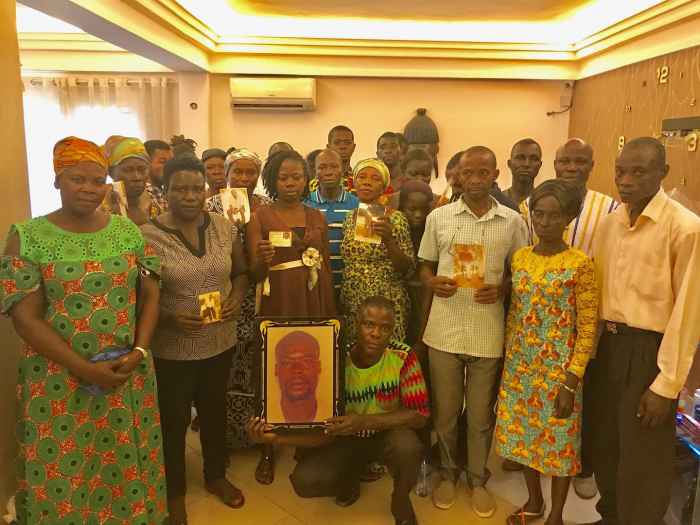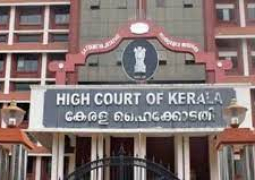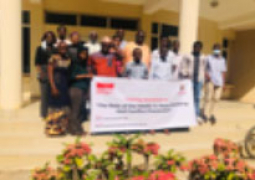
According to ANEKED, in July 2005, approximately 44 Ghanaian migrants as well as some 12 other West Africans (from Nigeria, Senegal, Togo, and Côte d’Ivoire) including two women (one reportedly pregnant) were forcibly disappeared in The Gambia while on their way to Europe by sea. A Gambian national, Lamin Tunkara, purported to have been their smuggler also suffered the same fate. The migrants were never heard from again except for one who managed to escape and alert authorities across the border in Senegal.
Following the enforced disappearances and for years afterwards, Ghanaian and Gambian civil society organisations have joined forces with the sole survivor and families of those who disappeared to campaign for those responsible to be held accountable in fair trials. However, their demands have fallen on deaf ears.
Despite pledges by both governments in 2009 to “pursue through all available means, the arrests and prosecutions of all those involved” no significant steps have been taken to back the rhetoric, even as evidence has emerged that the migrants were murdered, by the “junglers”, a death squad reporting directly to former President of The Gambia Yahya Jammeh.
Additionally, five different United Nations human rights monitors have expressed concerns to both governments at the lack of credible investigation carried out thus far.
“Nobody should have to wait 15 years to get justice for such serious human rights violation. The silence and inaction from both governments only serves to fuel impunity and lack of transparency surrounding the enforced disappearance of the West Africans. The families left behind continue their search for truth and justice," said Nana-Jo N’dow, founder and executive director of ANEKED.
The complaints, which benefitted from inputs provided by the “Freedom from Violence Project” of the Centre for Human Rights, University of Pretoria, also put a spotlight on the complex phenomenon of enforced disappearance in the context of migration. All migrants have human rights, no matter how or where they move. Furthermore, relatives of the disappeared have the right to know the full and unadulterated truth about the fate of their loved ones and obtain reparations regardless of their migratory status, gender or nationality.
Read Other Articles In Headlines





